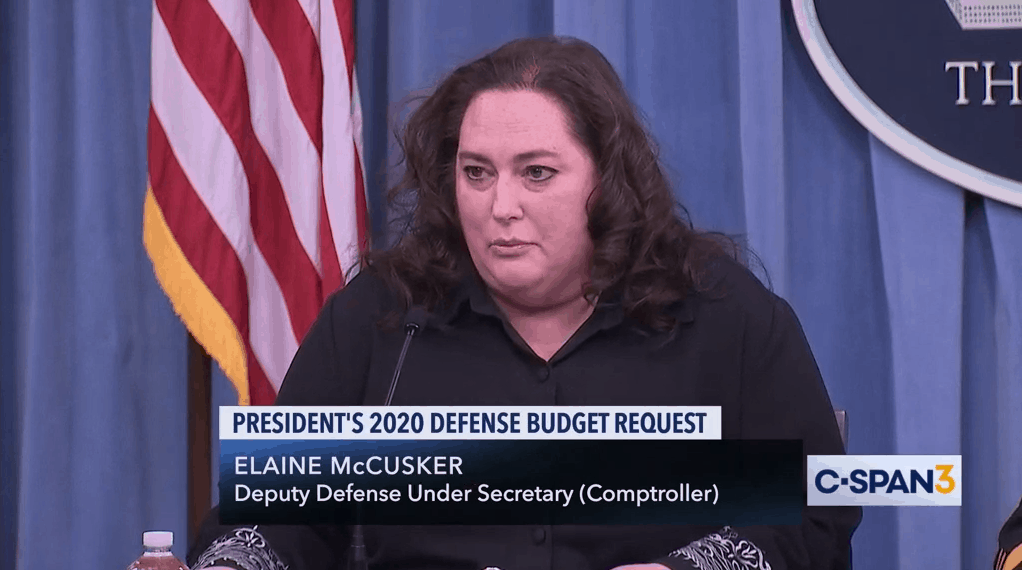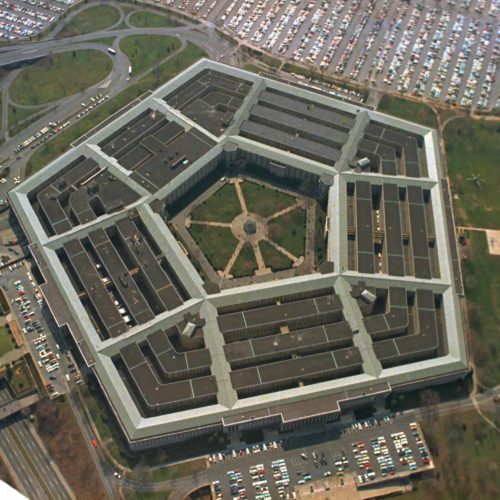Introduction
When confronted by House lawmakers angered about President Donald Trump’s halt in aid to Ukraine last summer, Trump administration officials repeatedly said the hiatus was meant to allow them to conduct a policy review about the aid program.
But the Pentagon’s deputy general counsel — in an email kept secret by the administration during the House and Senate impeachment proceedings in December and January — told his colleagues during the aid halt there was, in fact, no such policy review under way inside the administration.
The email from Pentagon lawyer Edwin S. Castle to the Defense Department’s top spending officer is the latest revelation about how Trump withheld aid to Ukraine — an issue at the core of congressional Democrats’ efforts to impeach and remove the president from office.
Castle sent his email on Aug. 26, a month after the White House began declaring in a series of eight weekly notices to the Pentagon that military assistance to Ukraine had been suspended “to allow for an interagency process to determine the best use of such funds.”
Castle said in the email he wrote to Acting Defense Department Comptroller Elaine McCusker: “Ma’am, I’ve learned that there is no ongoing interagency review process with respect to USAI,” the administration’s acronym for the $250 million aid program.
Castle’s email further noted that a group of senior government policymakers had “unanimously agreed that USAI should continue as planned” and that Trump’s then-National Security Adviser John Bolton, Secretary of Defense Mark Esper and Secretary of State Mike Pompeo had concurred.
The final decision, Castle said, “rests with POTUS,” meaning Trump.
Asked for comment, Office of Management and Budget spokeswoman Rachel Semmel said, “Don’t know if you saw, but President Trump was acquitted. You can put this to bed.” She also said, without elaboration, that Public Integrity was “ignoring emails that don’t fit your narrative.” The Defense Department didn’t respond to a request for comment.
But the Castle email adds to evidence that the White House’s principal public statements about the aid halt were composed to justify a decision actually taken for other reasons. It bolsters House testimony last year by Pentagon official Laura Cooper that during the period in question there were “meetings that occurred in the interagency. But I would not use the term ‘review’ to describe any of them because they were all just routine business.”
House Democrats impeached Trump after they concluded — based chiefly on public statements by lower-ranking officials rather than any documentary evidence — that Trump’s decision was meant to pressure Ukraine’s leader into announcing a probe of actions taken by Trump’s potential political rival, former Vice President Joseph Biden, and his son, Hunter Biden.
The House majority called this an abuse of power, but the Republican-led Senate declined to convict Trump on either of two articles of impeachment.
At odds with public and legal statements
The Castle email was released by the Defense Department to a Washington advocacy group, American Oversight, late in the evening Feb. 28. That day was a Friday — the day of the week often picked by officials who wish to bury embarrassing news.
DoD and American Oversight negotiated the release deadline in January, in the course of a Freedom of Information Act lawsuit filed by American Oversight in October. House lawmakers had separately subpoenaed such documents during their probe of the administration’s actions, but the White House blocked the Pentagon from complying with the request.
The emailed message that no interagency policy review was being conducted by the administration in August is at odds with some assertions by the Justice Department and the Office of Management and Budget in various other forums, including in legal documents filed in response to a Freedom of Information Act request by the Center for Public Integrity in September.
In response to a lawsuit filed by Public Integrity to force disclosures of the documents, for example, Heather V. Walsh, a deputy general counsel for the White House Office of Management and Budget, said in a court filing on Jan. 31 that certain Ukraine-related emails sought by Public Integrity could not be released in full because they reflected discussions and deliberations that were “part of a decision-making process conducted among senior officials.”

“OMB officials, including Principal Associate Director for National Security Programs Michael Duffey, engaged in an ongoing dialogue with officials at DoD, particularly McCusker, to gather information and analysis with respect to the USAI for the purpose of providing advice and recommendations to the President,” Walsh said.
Walsh made similar claims about the administration conducting a policy review in response to a FOIA lawsuit filed by The New York Times for emails between OMB and the White House related to the Ukraine aid halt. It said the requested documents could not be released because their content “reflects the sharing of opinions, views and conversations about deliberations that informed decisions regarding the use of security assistance funds for Ukraine … [including] inter- and intra-agency deliberative communications regarding ongoing Ukraine policy-making.”
And Office of Management and Budget general counsel Mark Paoletta, who played a key role in executing Trump’s decision to stop the aid to Ukraine, similarly said in a Dec. 11 letter to the Government Accountability Office that the halt was ordered so the executive branch could “conduct a process to determine the best policy for the efficient and effective use of funds” that Congress had ordered to be spent for Ukraine.
“This policy development process,” he said, “is a fundamental part of program implementation, and constitutes a type of programmatic delay. … OMB took appropriate action, in light of a pending policy process, to ensure that funds were not obligated prematurely in a manner that could conflict with the President’s foreign policy.”
In a court filing on Feb. 28, Public Integrity said claims that the government was engaged in a serious policy review about the aid during July and August, after Trump’s decision, were a sham.
Who We Are
The Center for Public Integrity is an independent, investigative newsroom that exposes betrayals of the public trust by powerful interests.
“There is no evidence of any serious reconsideration of the decision [by Trump] until some details of it became public and prompted a congressional inquiry in September.” Public Integrity also argued that the documents should be released “to ensure that the American public is not wrongfully denied access to documents that will shed light on the circumstances that ultimately led to the president’s impeachment.”
McCusker, the acting Pentagon comptroller who received Castle’s email and expressed concern in private emails that the aid interruption risked violating the law, was nominated months ago by Trump to formally take that Senate-confirmable position.
But just after 7 p.m. on March 2 the White House withdrew the nomination without explanation.
Read more in National Security
#UkraineDocs
#UkraineDocs update: Government files response to Public Integrity lawsuit
#UkraineDocs
GAO report backs private Pentagon conclusions that Trump broke the law on Ukraine
The holdup of aid to Ukraine falls ‘squarely’ into the definition of an illegal act, congressional auditors say, addressing a matter at the heart of a Center for Public Integrity lawsuit





Join the conversation
Show Comments